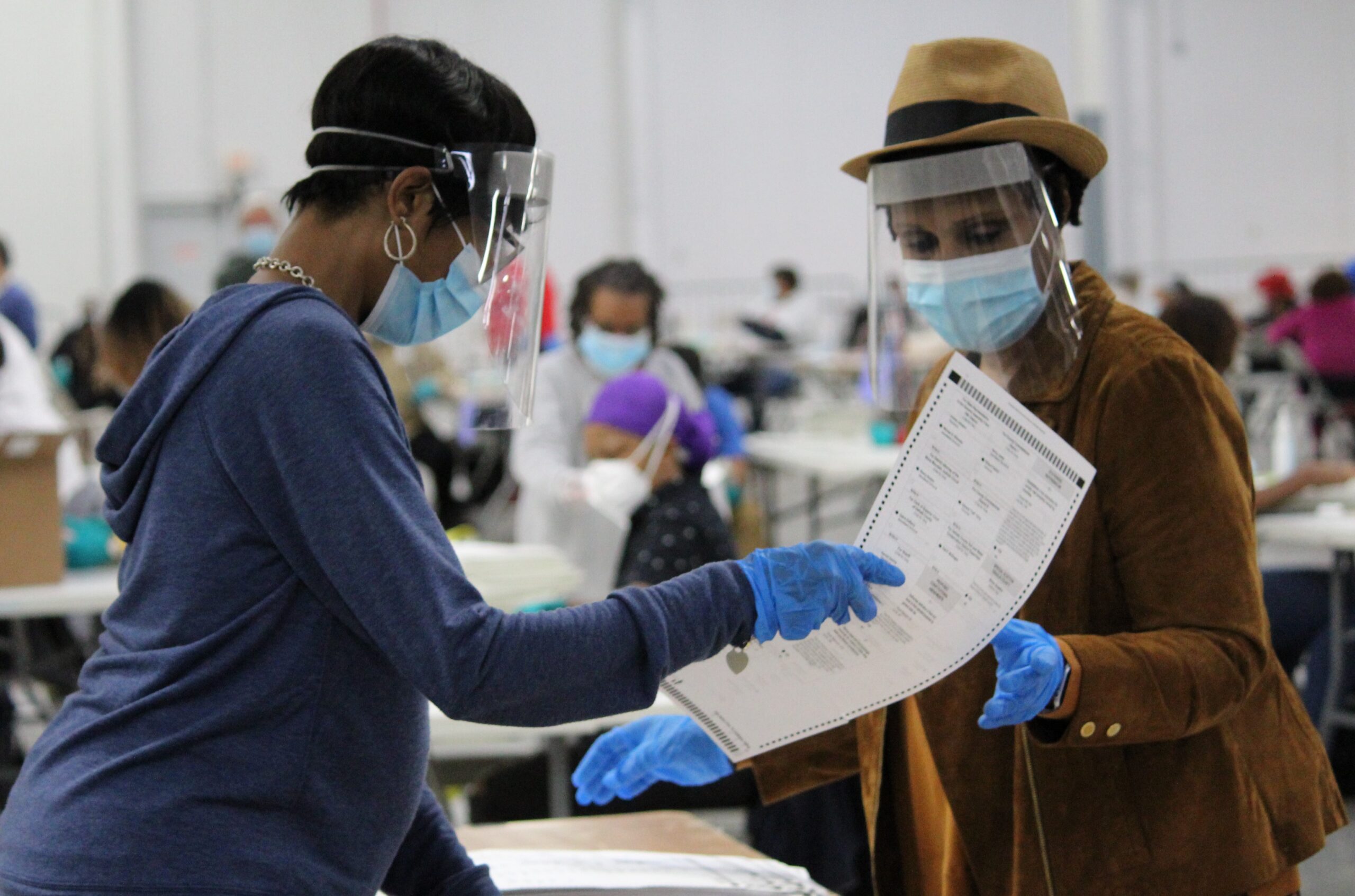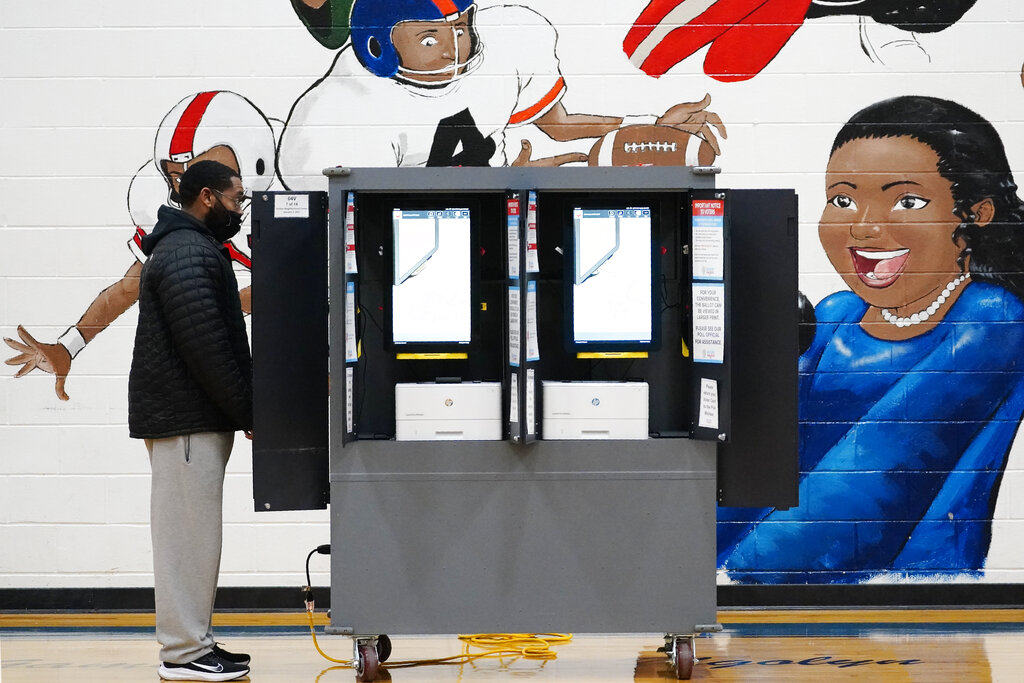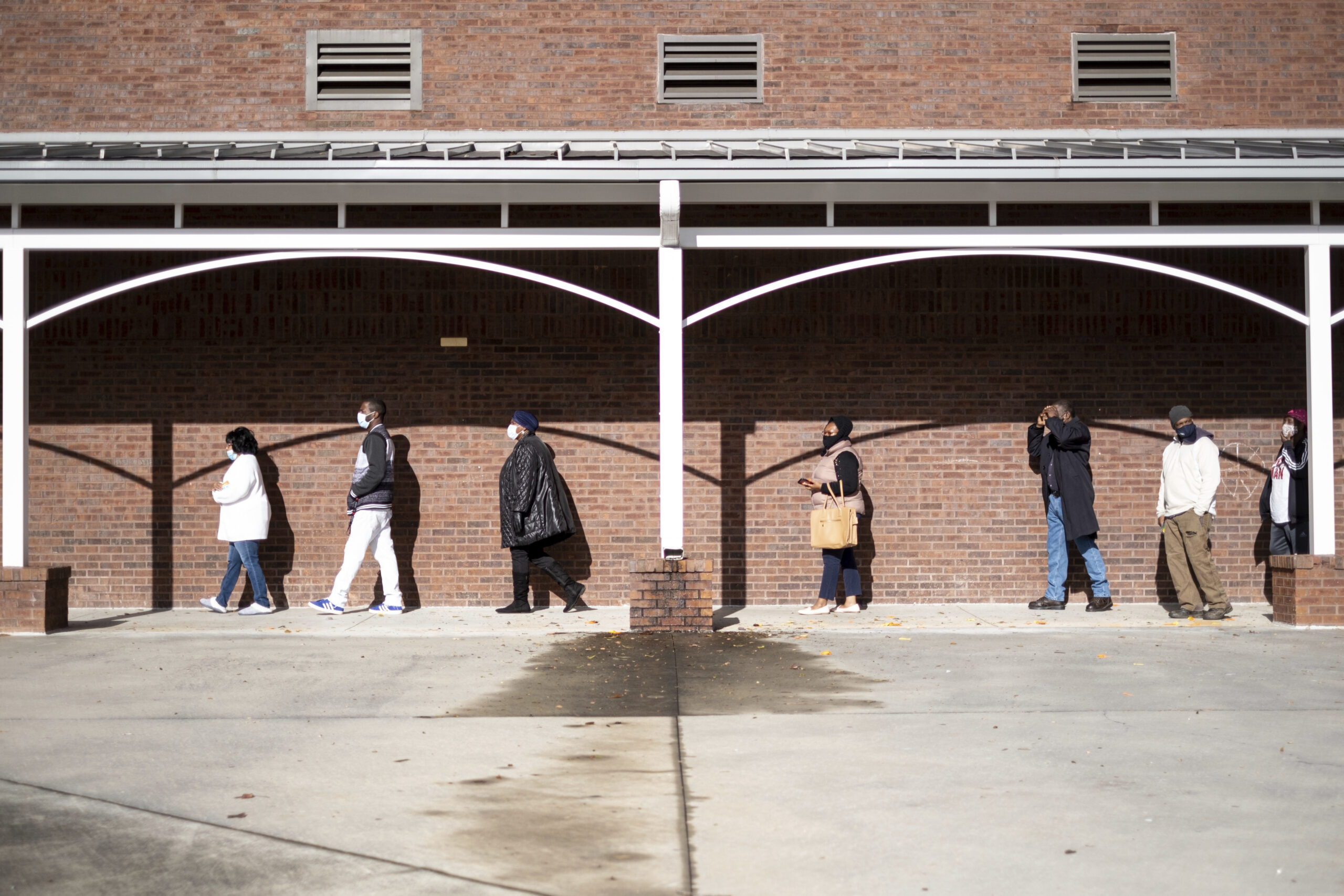Georgia’s elections officials have been undergoing an unprecedented hand tallying of the state’s 5 million presidential ballots. It’s happening as part of the state’s scheduled risk-limiting audit, in an effort to instill confidence in the 2020 results.
Their deadline for completion is midnight on Wednesday night, which the secretary of state’s office said they’re on track to meet.
So far, a handful of counties have discovered ballots that were not originally tallied, but the additions have changed the margin of victory by more than 1,000 votes. The vast majority of the state’s 159 counties have seen little to no difference between the audit and their original results. The biggest changes were in Floyd and Fayette counties where more than 2,000 previously unrecorded votes have been added to the total in each county.
With those additions, Biden’s margin of victory has shrunk by more than 1,000 votes. According to the secretary of state, it now stands at nearly 13,000.
Once the results of the audit are released, however, the story is not over.
What happens next?
After counties send their audited numbers to the state, the state will then do a review.
“We’re going to follow our normal process reviewing each county’s results and make sure they line up with our paperwork and our intel,” said Gabriel Sterling with the secretary of state’s office.
Sterling says the state plans to release the results of the audit, likely sometime Thursday.
“I don’t know an exact time yet because we don’t know when everybody will have everything lined up yet,” said Sterling. “Our plan is to do it as soon as we’ve checked all of our boxes, crossed our t’s and dotted our i’s.”
The state will then certify the election, which it is scheduled to do before Friday, Nov. 20, so that counties have time to mail out overseas absentee ballots for the runoffs, which they must do 45 days prior to an election.
What is state certification?
The state of Georgia will assess each county’s individually certified results and check that every piece of data lines up before the secretary of state signs and formally certifies the results statewide and presents them to the governor.
While media networks commonly “call” elections for candidates, results are not official until states certify them individually.
What happens after state certification?
With a margin of less than .5%, either candidate can request a formal recount in Georgia within two business days after state certification. Biden and Trump’s vote counts stand at less than .3% apart.
This formal recount would be different from the hand-tallied audit that has been happening because it would be done by the machine scanners.
Is it, therefore, unlikely that recount would find anything the audit hasn’t already found?
“I would hope this hand audit will be enough to satisfy those that question it, but our job is to follow the law,” Sterling said. “If it’s requested, we will work with the counties to execute that recount.”
Will another recount happen?
The Trump campaign is keeping its options open, and state elections officials are preparing for the scenario.
“Should it be deemed necessary, we are prepared to utilize all available means to ensure every legal vote is counted in the state of Georgia and that all can be confident of the results of the election,” said Republican National Committee spokesperson Savannah Viar.
The Biden campaign is unfazed by that possibility.
“In the end, more voters voted for Joe Biden than voted for Donald Trump,” said Marc Elias, a lawyer on the campaign’s legal team.
“There isn’t any amount of recounting of these ballots that’s going to change that fact. All it’s going to do is waste the taxpayers’ money of Georgia.”
How long would that take?
It’s never happened before because the state is working with new machines this year. However, Sterling estimated smaller counties would be done within a day, but larger counties “could take some extra time.” That’s because the formal recount is done by high-capacity scanners the state owns and are distributed among the counties. For larger counties, the number of scanners could amount to a bottleneck. Hand-marked paper ballots that are rejected by the scanner would have to be adjudicated for a third time.
“Our goal is to get through this as quickly as we can, without killing the counties,” Sterling said.
Fulton County elections director Richard Barron told county commissioners on Wednesday that a machine recount could take five to nine days.
Who is paying for all this counting?
The counties are footing the bill for the current audit process. While an exact total isn’t known, DeKalb County said last week it estimated a $180,000 price tag.
The state has said it is hoping to share some of the cost with counties by making use of federal grant dollars, but details haven’t been finalized. Sterling said this could be especially helpful for small and medium-sized counties.
If the losing candidate requests a recount after certification, counties will pay for that, too.
Sterling has noted that the decision to move other statewide runoff races, including for Public Service Commissioner, to coincide with the Jan. 5 U.S. Senate runoffs will save counties millions of dollars in staffing costs.
Are signatures on absentee ballots being verified again as part of the audit?
No. The signature verification process took place when ballots were received by the counties. Workers compared a voter’s signature on their absentee ballot envelope to their signature on their absentee application to their signature on their voter registration form. Once signatures are verified and “accepted” by counties, the envelope is separated from the ballot, leaving no personally identifiable information on a ballot. Therefore, even if a voter were deemed ineligible, there would be no way of finding that ballot to disqualify.
Have the campaigns filed any election-related lawsuits in Georgia?
The Trump campaign itself has filed one lawsuit in Georgia, regarding the counting of absentee ballots in Chatham County. It was dismissed by a judge the next day because of a lack of evidence.









